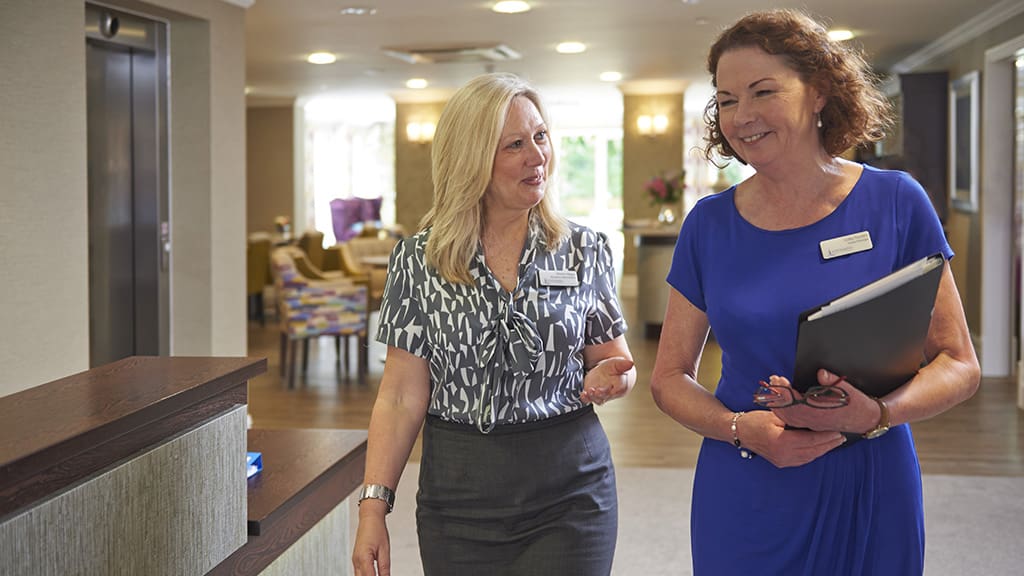Are Next of Kin Responsible for Care Home Fees?

There is a lot to consider when moving a loved one into a care home, with one of the biggest considerations being how the fees are going to be paid and by whom. Unless a signed contract is in place, the next of kin is not responsible for the care home fees of their loved one.
This article will detail who pays care home fees, how the fees are paid and who is responsible for care home fees after death.
Why do you have to pay care home fees?
Care home fees have to be continually paid to receive the care, support and services the care home provides. If the payment of fees falls behind or stops being paid altogether, your loved one may be at risk of being moved from their current care home to a less costly residency that may not be suitable to their physical or emotional needs.
What is the average cost of a care home?
The average cost of care home fees can vary widely depending upon the area of the country, the level of care provided and the range of lifestyle services, and can range from £27,000 to over £75,000 per year. Those with complex care needs or who require one-to-one support will pay higher fees than those with fewer care requirements.
It’s important to note that care home costs tend to be higher in the South of England, particularly in London and the Southeast, compared to the North or Midlands. Additionally, the cost may vary based on whether the care home is privately owned or operated by a local authority or the National Health Service (NHS).
What do care home fees cover?
Care homes have fees to cover a variety of services such as:
● Care services depending on your needs (more complex needs will usually require more support which means a higher cost)
● Accommodation cost
● Cleaning services e.g. laundry, keeping communal areas clean
● Dining and drinks
● Activities, entertainment and sometimes trips out
● Utility costs
Who pays care home fees?
For the most part, residents themselves are responsible for paying their own care home fees. The fees are usually determined by the local authority and the level of care needed through an assessment.
The fees can also be paid in the following ways:
● Local authority funding: Some or all of the care is funded through the local authority. Relatives and friends can also contribute to the fees an additional voluntary payment known as a “top-up fee”.
● NHS funding: In the case of individuals with complex health needs due to disability, accident or major illness, the NHS may be able to cover the care home or nursing home needs.
● Self-funding: The resident uses their own money, including savings, assets or regular income, to cover their care needs.
Having a means test
The first step in your care home journey is to undergo a means test by your local council authority. The means test is to help you and your loved one understand the level of care required and how the financial cost is to be paid.
The means test is divided into two parts. The first part is a care needs assessment that determines the care needs and levels of support. The second part is a financial assessment that analyses the individual’s savings, pension, and assets to understand if the costs can be covered themselves or if funding will be needed. Family and shared assets are not included in this assessment.
Am I legally responsible for my family member’s fees?
Next of kin are not legally responsible for paying family member’s care fees unless a signed contract is in place that states it is your responsibility.
Where there is no contract, you can choose to assist should you wish to, but there is no obligation to do so.
Is there any funding available?
As previously mentioned, there are some funds available to help your loved ones have access to a care home should they financially be unable to afford it themselves. These are local authority care home fee support and NHS care home funding.
Local authority care home fee support
The council may be able to pay for the cost of your social care if you have less than £23,250 in savings. The exact amount that the council will pay will depend on how much care you need and how much you can afford to pay. This is where the means test comes in to determine the funding you will receive.
NHS care home funding
Alternatively, the NHS can pay for the nursing care portion of your care home fees through a flat rate directly to the care home. Like the local authority care home fee support, there is an assessment to determine your eligibility for NHS-funded nursing care.
Who is responsible for care home fees after death?
In the unfortunate circumstance that your loved one passes away, it is still not the responsibility of the next of kin to pay care home fees. Instead, the care home will issue an invoice for any outstanding fees and they will be paid from the person’s estate.
The only time in which a next of kin would pay these outstanding fees is if a contract has been signed where you have agreed to pay them.
Care home funding with Porthaven Care Homes
We understand that care home fees and funding are a complicated matter, which is why all of our Porthaven homes have specialist financial advisors affiliated with the home to give you the peace of mind you need. Should you need support understanding Government Funding at our care homes or general financial advice, our home managers or client services managers can help put you in touch with an advisor on a no-obligation basis.
